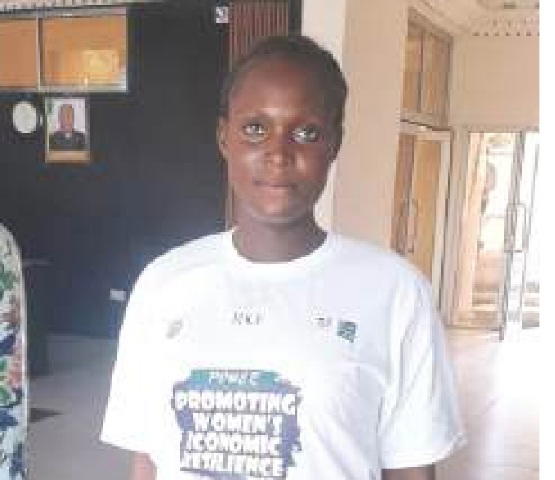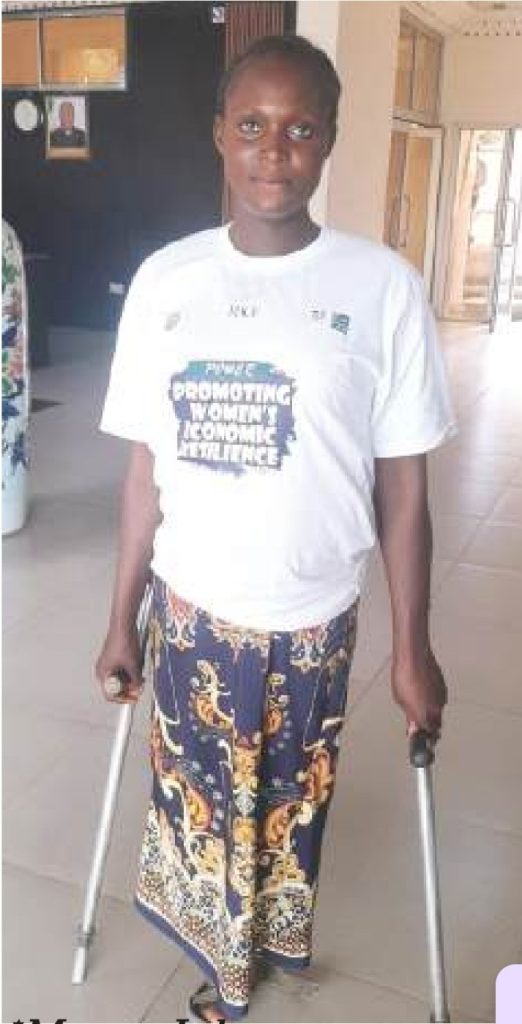From distress to stability: Stranded Benue female IDPs gifted economic lifeline

By Peter Duru, Makurdi
There is no gain saying that the impact of armed herdsmen attacks on communities is being felt more by women and children. Over time, many have not only been sacked from their ancestral homes but have also had their sources of livelihood destroyed, leaving them without options than to seek refuge in internally displaced person camps.

Many of the displaced and traumatised women and their children also lost their husbands, fathers and bread winners to the attacks in several of the invaded communities. The surviving women and children have as a result been forced into seeking solace in IDPs camps, while also contending with menial jobs to augment whatever they get from the government and kind-hearted individuals and organisations for survival.
That is the pathetic story of many of the displaced families taking refuge in several of the IDPs camps scattered across Benue State. Widows who have been left to bear the burden of catering for the needs of their children whose fathers had since been slaughtered by marauding armed herdsmen in Benue communities, now dominate the IDP centres spread across the state.
One of such victims is 35-year-old physically challenged mother of three, Mnena Juku, who currently lives with her three children at the Daudu II IDPs camp in Guma Local Government Area, LGA.
With a challenge that inhibits her movement, the mother of three is now left to rue her fate after her husband was murdered by armed herdsmen. Hear her: “It happened six years ago when we were forced to flee our community to reside in the IDPs camp. On that fateful day, well-armed Fulani herdsmen attacked Akaha village, a Tiv settlement in Obi LGA of neighbouring Nasarawa State.
“That attack left many persons dead, while many others sustained injuries. This was in late 2019. I was lucky because I was born with my physical deformity and I cannot walk without clutches. And in this instance when they attacked, my husband was not at home. He went to the farm and did not know that we were under attack.
“But luckily for me I was able to gathered my children and we ran into a nearby forest in our community. We hid there as they were shooting and burning down people’s houses and it was from the forest, when we noticed that they had withdrawn that we escaped to the camp in Dauda till day.
“But unfortunately because there was no way we could alert my husband that we were attacked, after working in the farm which was far away from our community he returned home and walked into am ambush by the armed herdsmen in our village. And when they caught him, they dragged him to the village and killed him there.”
“When we heard of the news of his death it was like that was the end of our lives because of my disability I can hardly farm. He does all the farming within I take care of the home.
“In his absence life has been very cruel. The children and me are merely managing to survive in the camp. It is not an essay experience. They go to the Daudu Market to sweep the stalls for traders on every market day and they are paid paltry sums.“That is what we are surviving on while I try to do anything my condition can permit to support the family,” she said.
But Mnena is a happy person today. She explained that in June her life took a dramatic turn for the better when she got enrolled by the Center for Redefining Alternative Civic Engagement for Africa (RACE Center) for vocational and managerial training to help her start earning money and improve her livelihood and that of her three children.
She is among the 50 displaced women enrolled by the scheme, which is being implemented under the “Promoting Women’s Economic Empowerment/Resilient Project (POWER) or “Tahav” in Tiv language in partnership with Gender and Environmental Risk Reduction Initiative (GERI), and supported by the French Embassy in Nigeria.
According to the mother of three “since I engaged in the training my life has completely changed. I started training in hair making and dressing and in one month the experience is life changing.
“Today my children do not need to go and clean stalls on market days to make money for us to survive. I have started washing and making hair. And I have also improved on my hair plaiting and braiding skills for which I am so grateful because now I do not have to wait for donations from people to survive.
“I have been taught a skill and I work even with my physical challenge and earn to take care of our needs. That is what this programme has done for me and my children for which I will remain eternally grateful.
”The Executive Director of RACE Center, Evelyn Ugbe, explained that the project is empowering the benefiting women who had already undergone skills training in tailoring, hair dressing, bag and soap making, baking, among others and have also started generating income from the enterprise.She disclosed that the Centre has plans in place to support and assist the women to access markets, loans and grants to further boost their livelihood.
“So we are having conversations about building their economic resilience through livelihood support, through vocational skills training as well as linkages to market. We have identify that, as one of the huge gaps in economic empowerment projects.
“We have developed their skills and they are learning how to produce liquid and bar soaps, they are learning how to produce bags, they are learning household food processing, business management skills so that they do not have only professional skills but have knowledge in accounting, book keeping and marketing.”
The post From distress to stability: Stranded Benue female IDPs gifted economic lifeline appeared first on Vanguard News.







